Touchdown, Kigali….
Having read quite a bit on the history, present and future of Rwanda, I enrolled for the 2017 DPMI-Rwanda program suspecting reality may be different from the glowing stories that hundreds of authors have written.Is Rwanda truly a model society for the rest of the African continent? Could the rest of the continent follow the Rwandan-model successfully? Is the ordinary man on the street feeling this ‘success’ as oft-reported in the New York Times and various other media? These and many other questions were racing through my mind as we landed at Kigali International Airport on Saturday, 31 December, 2016 just after midday.It did not take long to feel the ‘Rwandan experience’!
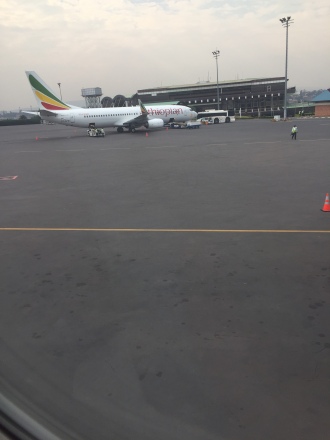
As we encountered the immigration officers in the arrival terminal – a process which took less than 15 minutes – the air smelt different, lighter, the smiles were genuine.As we emerged on the other side to pick up our luggages – with our mobile gadgets fully connected to the airport WIFI – we were ‘checking-in’ on Facebook to let family and friends know we had landed safely.By the time our taxi picked us up for our Kigali accommodation I could tell this was a unique place.Different.The exuberance, the genuine smiles and sincere greetings/handshakes were standing out.This felt different, this was different.Was there more to the story?
Pristine Kigali
After a smooth 10 minute-ride across town we arrived at Discover Hostel – our home for the next 48 hours.After a long journey from Dallas via Addis Ababa I was understandably fatigued and needed sleep, quick.But that could wait!How could I sleep in such a breathtaking place with easy-going people on New Year’s Eve! After a quick shower, I emerged from my room at about 5pm ready to interact with the Rwandese, share stories, and commonalities – things that connect us as humans on this beautiful planet.I met Serge, our host at Discover Hostel…
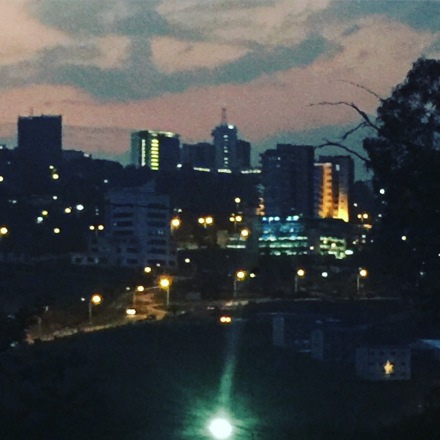
Rwinkwavu, next stop
Our group, comprising of five MIIS students and a Partners In Health professional, Adrien, was to come up with a Social Marketing Campaign to help tackle the challenge of malnutrition in Rwinkwavu. While the numbers of malnutrition cases are going down, it is not happening at the target rate.Could a social marketing campaign help raise awareness about malnutrition in the local population and speed-up this downward trend? We worked with various tools – such as Fishbone Analysis, Results framework in order to correctly diagnose the factors contributing to this challenge and propose different approaches to tackle malnutrition.
As we worked on this campaign for Partners In Health in Rwanda my mind kept on coming back to the environment that the program will be implemented in, namely, Rwanda.While it is true that Rwanda was one of the few countries that successfully met the Millennium Development Goals (predecessor to the current SDGs), I approached my research a bit on the ‘suspicious’ side.Was it really the much-vaunted success or another ‘feel-good’ story about the Global South designed to keep hopes alive? I had to engage the youths, the mothers, and indeed the fathers of Rwanda at the slightest opportunity in order to ‘separate fact from fiction’.This had to be done to get a correct sense and feel of the society in order to complement the material and frameworks we worked on in class.
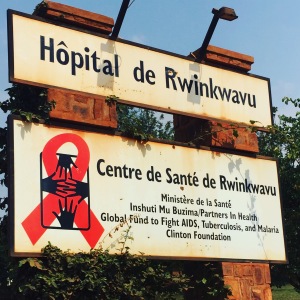
Solidarity – no substitute for it
Even though we were in Rwanda for less than three weeks, one thing remained visible from Kigali to Rwinkwavu – that of a nation working towards a common goal as one and while heated debates arose here and there, the spirit of oneness was apparent.This, I believe, is critical for success in implementing developmental projects and could explain why the country continues to surpass various socio-economic targets.How could I forget the smiles that beamed on residents’ faces as I enquired about the Umurenge SACCOs Program (a local micro-finance program) or Umuganda (a modern-day community work program rooted in Rwanda’s traditional practices).
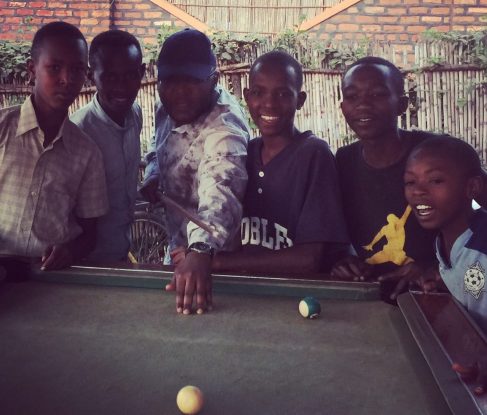
Regional integration, critical
Our first Saturday saw us traveling to the town of Kirehe in the Eastern Province of Rwanda.A bustling town less than an hour from the border post with Tanzania, Kirehe has a major highway linking the two East African countries and there’s an almost constant flow of traffic, in both directions. What stood out were the trucks, buses and lorries bearing Tanzanian, Burundian number – plates making a beeline for the capital, Kigali.As a landlocked country without much in terms of natural resources, Rwanda depends on its neighbors for imports, and deepened integration is essential.It was immediately clear that local economy at Kirehe is booming due to the commercial activity between the two countries.Locals admitted traffic is on the increase and the road may need to be expanded.
Local Ownership
Spending a significant part of my life in Zimbabwe and traveling to a few countries in the region gave me the opportunity to compare different approaches to development with the Rwandan model.In many parts of the region it was not rare to see various development projects led by foreign-actors, who – even though with the best of intentions – could not fully understand the local customs and culture in which the projects were implemented.In Rwanda, the concept of local ownership seems to have taken root as evidenced by the various programs rooted in the society’s traditions.
The Partners In Health hospital at Rwinkwavu is a case in point. PIH’s demonstration gardens are not only managed by local experts like Sebu, the agronomist, but also embrace the local crops and growing techniques that the people have been using since time immemorial.Total buy-in by the local population is critical if any development project is to succeed and the ‘PIH-model’ can be seen replicated across many programs of the Rwandan government and its development partners.Our DPMI class was no exception as we had a ‘local’ point person in each one of the groups adding much-needed value to group discussions and debates.
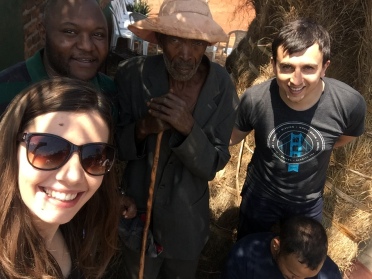
Conclusion
While a vast swathe of the Rwandan population still remains in dire need of economic assistance from the government, the country is on the right path.This has been made possible through a mix of traditional methods and modern techniques that development partners such as PIH have brought.No society has a monopoly of truth and the Rwandan authorities seem fully cognizant of this fact as they have embraced modern financing techniques for small business owners while also retaining or modifying their long-tested cultural practices such as Umuganda.
‘Could this be replicated across Africa and the rest of the developing world?’, I kept asking myself as we boarded the giant Qatar Airways plane bound for Doha, Qatar. The answer is an unequivocal, yes! Rwanda has a model worth emulating across the region.’Safe travels my brother, see you soon!’, Serge’s WhatsApp message came through.’Murabeho! see you soon, brother!’, I texted back as the plane taxied on the runway.We were soon off.